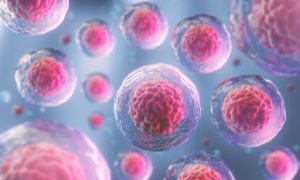Have you ever wondered what biologics are or what biomanufacturing is? What’s the difference between them? Keep reading to find out!
A Biologic is “a product manufactured in, extracted from, or semi-synthesized from a living system.” In other words, they come from natural sources like plants or animals.
What is Biomanufacturing?
Biomanufacturing, also known as bioproduction, is the process of manufacturing drugs and other biological products using cells or tissues from plants, animals, or microorganisms. This can be done through different methods, such as:
- Fermentation
- Cell culture
- Recombinant DNA technology
Fermentation is the process of using microorganisms to convert carbohydrates into alcohol or organic acids.
Cell culture is the process of growing cells in a laboratory environment.
Recombinant DNA technology is the process of combining DNA from two different sources to create a new piece of DNA.
Biomanufacturing is a critical process in the production of biologics. Without it, we wouldn’t be able to create many of the life-saving medicines and treatments that we have today.
Biologics are used in a variety of fields, such as:
- Medicine
- Agriculture
- Food science
Biologics can be used to treat diseases, improve crop yields, or make food taste better.

What Are Biologics Made From?
Biologics are made from living cells or organisms. These cells can come from plants, animals, or microbes.
Microbes are tiny living things that can only be seen with a microscope. Some examples of microbes are bacteria and yeast.
A biologics contract development and manufacturing organization (CDMO) is a third-party company that provides services to develop and manufacture biologic drugs.
This can include everything from cell line development and process design to manufacturing and quality control.
What is a Biological Product?
A biological product is a “product that is manufactured in, extracted from, or semi-synthesized from a living system.” In other words, it is a natural product that has been modified in some way.
What Are Biologics Used For?
Biologics can be used for a variety of purposes, such as:
- Treating diseases
- Preventing diseases
- Treating injuries
- Managing pain
Some examples of diseases that can be treated with biologics are:
- Cancer
- HIV/AIDS
- Diabetes
- Arthritis
What Are The Different Types Of Biologics?
Biologics are medicines derived from natural sources, as opposed to synthetic chemicals.
Biologics can be produced through biomanufacturing, which is the use of living cells or tissues to make pharmaceuticals.
The first biologic drug, insulin, was discovered in 1922 and has been used to treat diabetes since then.
There are many different types of biologics, including:
- Monoclonal antibodies
- Cytokines
- Growth factors
- Vaccines.
Monoclonal antibodies
Monoclonal antibodies are a type of biologic that is created through biomanufacturing. They are made from a single type of cell, which is why they are called “monoclonal.”
Monoclonal antibodies are used to treat a variety of diseases, including:
- Cancer
- Rheumatoid arthritis
- Crohn’s disease
They are also used to prevent the rejection of transplanted organs. Monoclonal antibodies can be made from human or animal cells. The most common source of cells for making monoclonal antibodies is mouse cells.
Cytokines
Cytokines are small proteins released by cells that have a wide variety of effects on other cells. They can be secreted by immune cells, such as T-cells and macrophages, in response to infection or injury.
Cytokines can also be produced by other types of cells, such as cancer cells. There are many different types of cytokines, and they can have either pro-inflammatory or anti-inflammatory effects.
Some cytokines, such as tumor necrosis factor (TNF) and interleukin-1 (IL-1), are powerful mediators of inflammation.
Others, such as interleukin-10 (IL-10) and transforming growth factor-beta (TGF-beta), have anti-inflammatory effects.
Cytokines play an important role in the body’s immune response and can also affect the development and progression of diseases, such as cancer and autoimmune diseases.
Growth factors
Growth factors are proteins that are naturally produced in the body and are responsible for promoting cell growth and division.
They are used in biomanufacturing to stimulate the production of new cells, which is essential for the manufacture of biologics.
Several different growth factors can be used in this process, and each one has its own unique set of properties that can be beneficial for biologics manufacturers.

Vaccines
Vaccines are made from tiny amounts of viruses, bacteria, or other germs that have been killed or weakened so they can’t cause disease.
Vaccines help protect people from disease by giving them a “dose” of the virus, bacteria, or other germ used to make the vaccine.
When the person’s immune system fights off the vaccine dose, the immune system is also prepared to fight the real virus or bacteria if it comes in contact with it. They are used to prevent infections such as influenza, HPV, and chickenpox.
Biologics can be administered in several different ways including:
- Intravenously (by injection into a vein)
- Subcutaneously (by injection under the skin)
- Intramuscularly (by injection into a muscle)
- Orally (by mouth)
- Topically (on the skin)
Some biologics must be refrigerated until they are administered, while others can be stored at room temperature.
Biologics offer many potential benefits over traditional drugs. They are more specific in their action, meaning they can target certain cells or tissues without affecting healthy ones.
They also tend to have fewer side effects than traditional drugs because they are made from natural sources.
What are the key distinctions between conventional drugs and biological products?
The key distinctions between conventional drugs and biological products are:
- Conventional drugs are small molecules that are chemically synthesized, while biologics are large molecules that are produced by living cells
- Conventional drugs can be taken orally, while biologics must be injected
- Biological products are more expensive to produce than conventional drugs
- Biological products are more difficult to develop than conventional drugs
- The FDA regulates biological products more strictly than conventional drugs
Wrapping it Up!
We hope this article helped you better understand what biologics are and what they’re used for. If you have any questions about the topic of biologics or biomanufacturing, let us know in the comments below!
Frequently Asked Questions
The main difference between biologics and pharmaceuticals is that biologics are made from living cells, while pharmaceuticals are made from chemical compounds.
The easiest way to tell if a drug is biological is to look at the size of the molecule. Biologics are typically large molecules, while pharmaceuticals are small molecules.
A biologic is a product that is made in, extracted from, or semi-synthesized from a living system. In other words, it is a natural product that has been modified in some way. Biologics can be used to treat diseases, improve crop yields, or make food taste better.
The post What Is Biomanufacturing? Biologics Explained appeared first on Tweak Your Biz.


0 Commentaires